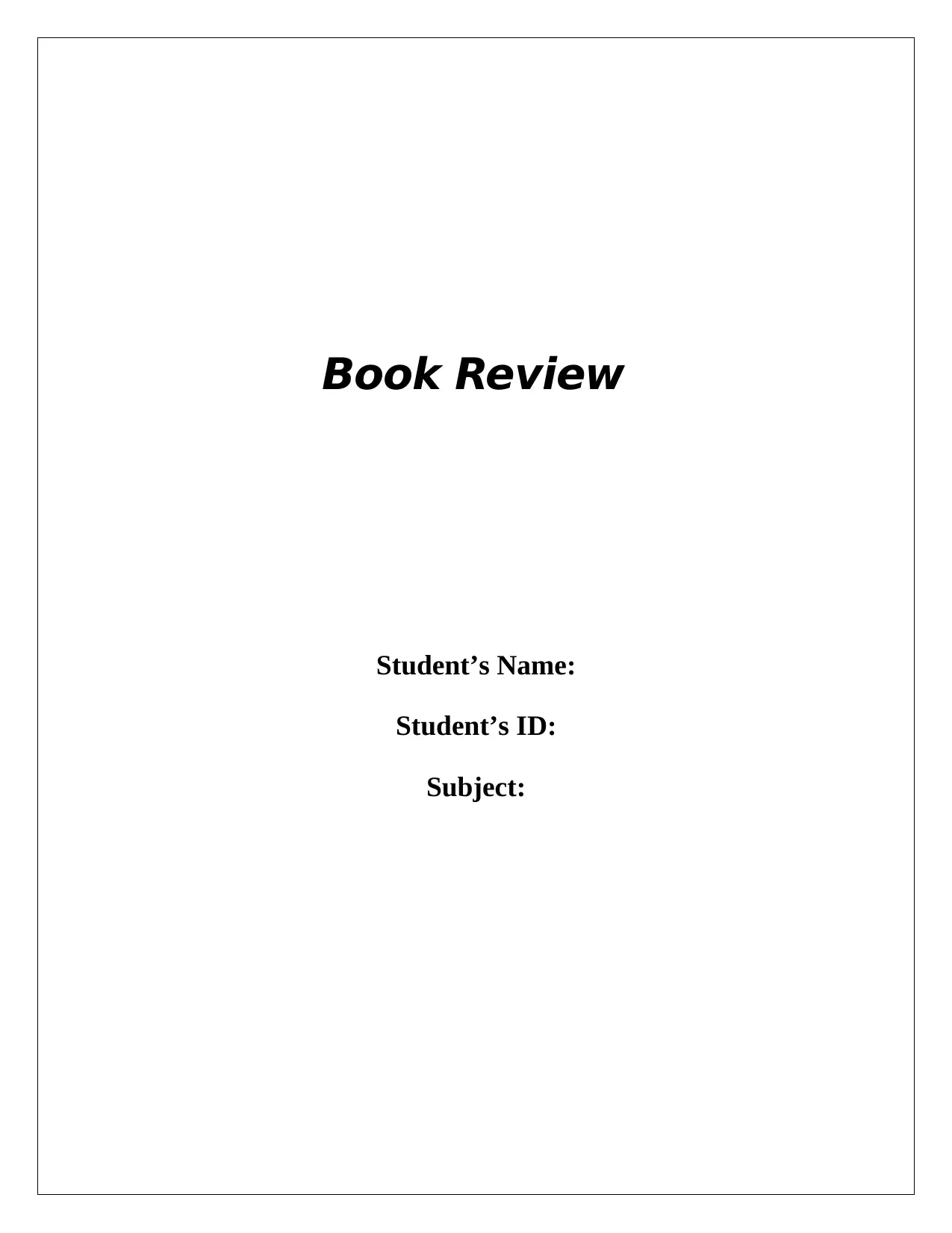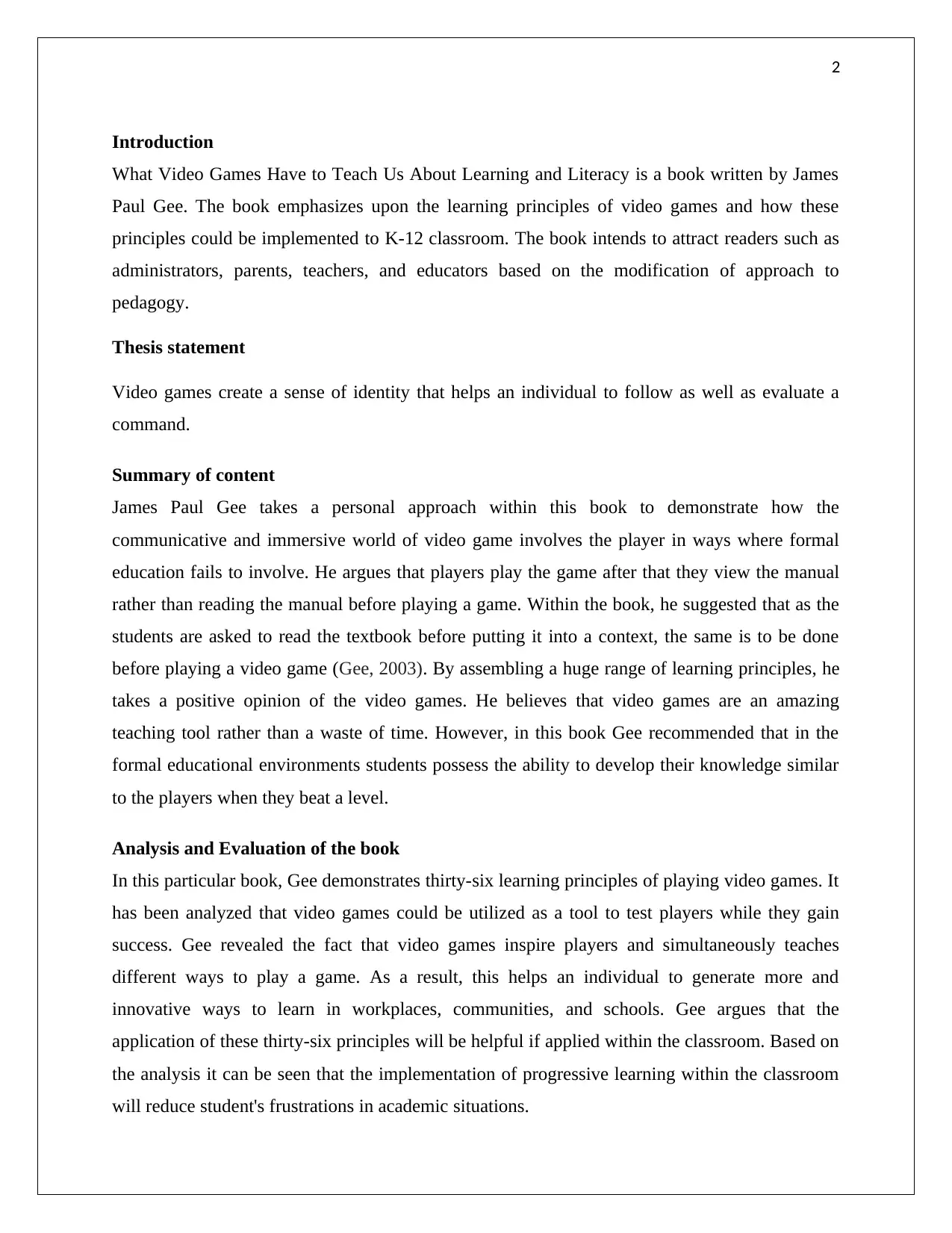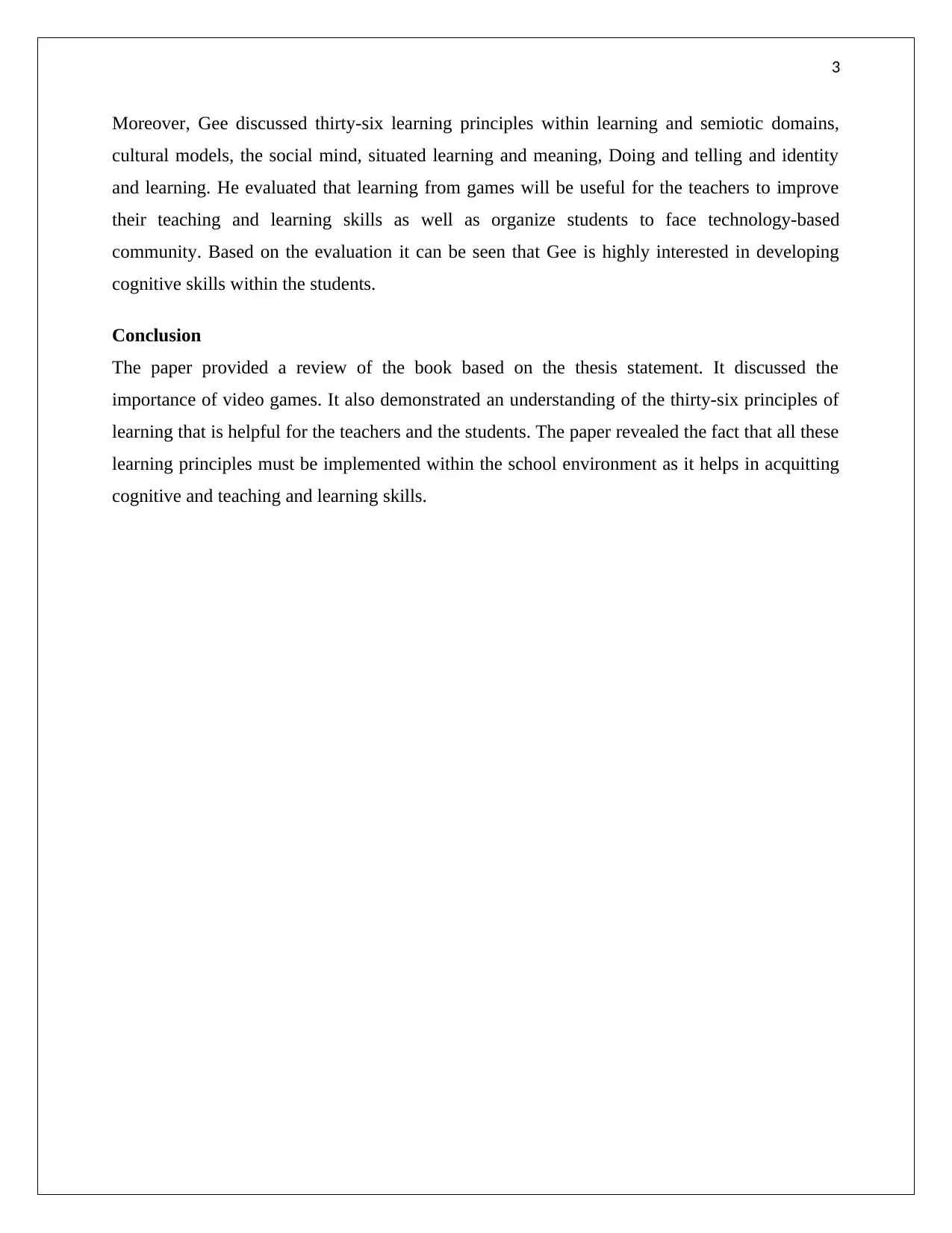Critical Review: Applying Video Game Learning to Education System
VerifiedAdded on 2023/03/23
|5
|616
|50
Report
AI Summary
This report provides a comprehensive review of James Paul Gee's book, 'What Video Games Have to Teach Us About Learning and Literacy,' focusing on Gee's thesis that video games offer valuable learning principles applicable to K-12 education. The review summarizes Gee's argument that video games engage players through immersive environments and communicative interactions, contrasting this with traditional formal education methods. It analyzes and evaluates the book's exploration of thirty-six learning principles found in video games, highlighting their potential to enhance cognitive skills and adapt teaching methods for a technology-based community. The review concludes by emphasizing the importance of implementing these principles in educational settings to foster both cognitive and teaching-learning skills.
1 out of 5












![[object Object]](/_next/static/media/star-bottom.7253800d.svg)